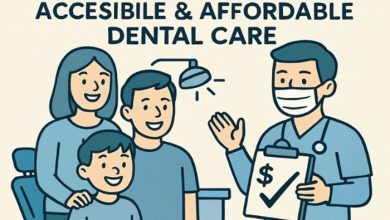
In today’s fast-paced, stress-driven world, mental health struggles and alcohol addiction often go hand in hand. What starts as a coping mechanism can quickly spiral into dependency, causing harm not only to the individual but also to their relationships, career, and overall well-being.
Treating mental health conditions alongside alcohol addiction is essential for meaningful, long-term recovery. Through integrated rehab programs, including those offering luxury dual diagnosis treatment, individuals receive coordinated care that addresses both challenges together, supporting a more balanced and sustainable path forward.
Understanding the Connection Between Alcohol Addiction and Mental Health
According to the National Institute on Drug Abuse (NIDA), more than 9.2 million adults in the United States experienced both a mental health disorder and a substance use disorder in 2021. This is referred to as a co-occurring disorder, sometimes known as dual diagnosis.
But why do these conditions so frequently occur together?
Common Reasons Include:
- Self-Medication: People with anxiety, depression, PTSD, or bipolar disorder often turn to alcohol to cope with overwhelming emotions.
- Neurochemical Changes: Alcohol temporarily alters brain chemistry to relieve stress but worsens mental health in the long run.
- Shared Risk Factors: Genetics, trauma, chronic stress, and environmental triggers can contribute to both mental health issues and substance abuse.
This creates a vicious cycle: alcohol temporarily relieves mental health symptoms but ultimately exacerbates them, leading to heavier drinking and more severe mental health struggles.
Why Treating Both Conditions Separately Doesn’t Work
For years, many healthcare providers treated addiction and mental health issues in isolation. A person might attend rehab for alcohol abuse but receive no support for underlying depression, or vice versa.
This fragmented approach leads to poor outcomes:
- High rates of relapse
- Untreated mental health symptoms
- A continued cycle of self-medication
Effective recovery must treat both the mind and body together.
The Solution: Integrated Dual Diagnosis Treatment
Centers like Crestview Recovery specialize in dual diagnosis treatment, a model designed to address both mental health disorders and addiction simultaneously.
Key Features of an Integrated Program:
- Comprehensive Assessment: Understanding each client’s unique combination of mental health and substance use challenges.
- Medical Detox: Safe, supervised detoxification to manage withdrawal symptoms.
- Individualized Therapy: Addressing both substance use triggers and mental health needs through evidence-based practices.
- Medication Management: Where appropriate, medications can stabilize mood, reduce cravings, and manage mental health symptoms.
- Skill Building: Teaching emotional regulation, coping strategies, and relapse prevention.
- Holistic Care: Incorporating wellness practices like yoga, meditation, nutrition, and exercise.
What to Expect During Alcohol and Mental Health Rehab
1. Assessment and Diagnosis
Recovery starts with a detailed evaluation by clinicians, including:
- Mental health assessments
- Addiction severity evaluations
- Medical history
- Social and family dynamics
This ensures a personalized treatment plan rather than a one-size-fits-all solution.
2. Medically Supervised Detox
Alcohol withdrawal can be dangerous, even life-threatening. Symptoms may include:
- Severe anxiety
- Shaking
- Seizures
- Delirium tremens (DTs)
3. Therapeutic Interventions
The heart of rehab lies in therapy. Evidence-based treatments include:
- Cognitive Behavioral Therapy (CBT): Identifying negative thought patterns that contribute to both addiction and mental health issues.
- Dialectical Behavior Therapy (DBT): Teaching emotional regulation and stress management, particularly helpful for clients with mood disorders or trauma.
- Trauma-Informed Care: Addressing root causes of addiction, especially for those with PTSD or childhood trauma.
- Group Therapy: Peer support fosters connection, accountability, and shared healing.
- Family Therapy: Engaging loved ones in the recovery process to improve relationships and support systems.
4. Medication-Assisted Treatment (MAT)
For some, medications play a critical role in stabilizing both addiction and mental health:
- Naltrexone: Reduces alcohol cravings.
- Acamprosate: Helps maintain sobriety.
- SSRIs or mood stabilizers: Manage conditions like depression, anxiety, or bipolar disorder.
These are always combined with therapy for a comprehensive approach.
5. Holistic and Lifestyle Support
True recovery isn’t just about quitting alcohol — it’s about rebuilding a healthy, sustainable life. Rehab programs offer:
- Physical fitness programs
- Mindfulness and meditation
- Nutritional counseling
- Stress reduction techniques
6. Aftercare and Relapse Prevention
Leaving rehab doesn’t mean the work is over. Effective programs provide:
- Outpatient therapy
- Continued medication management
- Support groups like AA, SMART Recovery, or dual-diagnosis groups
- Sober living options if needed
- A personalized relapse prevention plan
The Benefits of Choosing a Specialized Program Like Crestview Recovery
Selecting a rehab center that specializes in dual diagnosis offers key advantages:
- Integrated care under one roof
- Licensed mental health professionals and addiction specialists working together
- Evidence-based practices tailored to co-occurring disorders
- A full continuum of care from detox to aftercare
At Crestview Recovery, clients benefit from an environment focused on not just sobriety but also on long-term mental and emotional wellness.
When Should Someone Seek Help?
If you or a loved one experiences any of the following, it may be time to consider a dual-diagnosis rehab program:
- Drinking to cope with stress, sadness, or anxiety
- Persistent feelings of depression, fear, or hopelessness
- Physical dependence on alcohol (experiencing withdrawal symptoms)
- Struggles in personal relationships, work, or health due to alcohol or mental health challenges
- Previous unsuccessful attempts at sobriety or mental health management
Conclusion: Healing Happens When the Whole Person is Treated
Mental health and alcohol addiction are deeply interconnected. Treating them separately doesn’t work — but integrated, evidence-based care can transform lives.
If you or someone you care about is struggling with both alcohol use and mental health challenges, don’t wait. Reach out to the professionals at Crestview Recovery to learn how a comprehensive, dual-diagnosis treatment plan can provide the support needed for real, lasting recovery.




